- Home
- Trevor Hoyle
The Gods Look Down Page 17
The Gods Look Down Read online
Page 17
She kneeled up, astride him, and through the mist her hand, like a shadow, came to rest between her legs. She rubbed the place and uttered small sounds like an animal bleating softly, caught in a trap.
‘Taste me,’ she said, offering her hand to him, and pressed her wet hand to his lips, inserting her fingers one by one into his mouth so that he tasted the flavour of her on his tongue.
She said, ‘Now I will taste you,’ moving down and bending forward, holding him firmly with one hand and bringing her face close enough to feel his heat. She extended her tongue and licked him, following the rigid contours and moist smoothness, the tip of her tongue lingering on the folded cleft which opened slightly at her silky explorations.
He murmured something and she smiled in the darkness below, nuzzling him: his heat and smell intoxicated her. She opened her jaws and enclosed him with her mouth, sliding on to him as deeply as she could, the sensation as of a burning shaft filling her mouth so that the skin of her cheeks was taut and shiny, her head burrowing down sightlessly; she was eager and greedy, savouring him, herself aroused by the bigness she had created.
Withdrawing her wet open mouth she said, ‘Feel what you’ve done to me,’ and rubbed herself on his thigh, sliding along it until they were both saturated and his leg, from hip to knee, was slippery with her.
She said, ‘Sucking you made me come. I love the feel of it in my mouth. When it’s in my mouth I want to keep it there always, big and hard, filling my mouth, and feel you—’
She said, ‘But not yet. We must save your sperm, your precious and divine seed. It has important work to do, my Lord.’
Once again she took firm hold and leaned over him, arching her back so that he fitted snugly between her breasts; then placing her hands on either side of her breasts, where the fullness overlapped, she pressed them together until he was enclosed, just the dark bruised head visible amidst the enveloping softness. She began to move to and fro, working him gently, watching first the head rising and expanding beneath her chin and then looking at his face and listening to the noises he was making in his delirium.
He felt huge between her breasts, a rigid monster which scalded her flesh and seemed to grow with each downward stroke. Fluid seeped from him and annointed the insides of her breasts, making the sound of sucking flesh, and she had no choice but to work him faster, sliding up and down in a regular frictionless glide which so excited her that she became wetter and it ran down her open legs and sprinkled his thighs.
She said, her breathing broken and quick. ‘Beautiful. Beautiful. It’s so big I can’t imagine what it will be like inside me. It will split me. I’m sure it will split me, such a huge monster of a thing. And when I think of it inside me, all this inside me, I want to die. I want to die with it right up inside me.’
She released him and her breasts swung apart, the inner curves shining wetly in the misty light, her blunt nipples so stiffly aroused that they ached.
She said, ‘I can’t wait, I want it now,’ and kneeling up, straddling his legs, took hold on him and used just the end to explore the hairy slipperiness between her legs, teasing herself but not allowing anything more: greedy and desperate and yet wanting to sustain the agony of waiting until the anticipation had been wrung dry and there was nothing to be done but the act itself. The act of divine consummation.
‘We are nearly there, my Lord … nearly there … oh nearly there …’
She was now jerking him fiercely and could feel the energy gathering beneath her fingers. Her legs were spread apart, her cunt open and ready, working him with her hand so that she was touched and titillated by the solid hotness rubbing against her.
‘Come into me, my Lord, right up into me. I want to feel you here’ – sinking slowly upon him until she was impaled and he was held fast, the two of them joined one unto the other.
She said, ‘Fill me with your seed, let me bear your child. Let it spurt up from within you and into my belly. Fill me with your sperm, I want every drop … oh yes, I can feel it, I can feel you coming inside me …’
She began to writhe, her movements became frenzied and uncontrolled, she took everything until he was empty and she was full, and after a while they were still. The mist swirled about him and the giant’s eyes were sad and weary. He had had a pleasant dream and all he wanted to do now was sleep. Dreams can be very exhausting.
Meria, daughter of Dagon, stood at the side of the bed and pressed the palms of her hands flat to her belly and closed her eyes in satisfied fecund contemplation; the corners of her mouth curved up in a little saintly smile.
Thus it is that the children of the gods are born of mortal beings.
*
As was prophesied and would one day be written, the battle took place and the Dagonites were triumphant.
The two armies met on the edge of the desert plateau, at a place called Aphek, which was bordered on three sides by a low undulating range of stony foothills where in days gone by brigands had waited for merchants to pass by and in-between times had subsisted on the lone traveller. But the merchants had grown wise and chosen another route and the brigands had moved on. The place had been decided upon by the elders of Shiloh because it was some distance away and they hoped that this would save the city from direct attack.
It was a mistake. Whilst it was true that the city would not be immediately endangered, the choice of battleground was too far away to maintain an adequate supply-line or to call up reinforcements. Everything they required had to be taken with them on a trek of two days which sapped the strength of both men and animals; and at Aphek, they discovered too late, the oasis was dry as a bone. The consensus of opinion amongst the five patriarchs who were the military leaders was to strike camp and return quickly to the oasis at Eben-ezer, but already it was too late. On agreeing to this they made the error of deciding to rest overnight and set off on the following day; at dawn of that day the Dagonites attacked.
They had infiltrated the foothills overnight and as the first ray of sunlight touched the banner of the Tribe (a black seven-pointed star on a white ground) they came stealthily and swiftly from out of the rocks, moving with that ungainly twist of the hips which was made necessary by their malformed bodies. They scuttled rather than ran, but the grotesque awkwardness of their movements made no difference: they had slain the guards and set upon the sleeping men before any alarm could be given, and they were merciless, cold, inhuman in their slaughter. There was no blood-lust in their eyes, they didn’t yell or screech or make any sound, but set about the task of killing with calm unhurried deliberation. And they killed each man in exactly the same way: three thrusts of the sword through the neck, the heart, and the genitals. They were methodical in massacre and so efficient that only a bare handful of the Tribe managed to escape, leaping on to the tethered camels, hacking at the ropes with wild hopeless strokes and clinging on as the beasts lurched into panic-stricken flight.
There was one group of men – twenty or so – led by the patriarch Abiel who stood their ground and fought. They were the only ones to see how the Dagonites could be beaten, though the knowledge was useless because it went with them to the grave. It happened that one of the group, more by mischance than a calculated attack, struck the tube which connected the mouth and chest of a Dagonite and as it fell away, severed in two, the colour of his face changed in that instant from white to black. It happened so suddenly, this choking fit of death, that the young soldier stood transfixed in astonishment and was cut from behind through the neck, the heart, and the rectum.
Another of the Tribe managed to do the same, slicing the tube with a frantic sweep of his sword and the Dagonite’s hoarse breathing ceased at once and he fell to the ground with the black gaping hole of his mouth screaming soundlessly at the sky. The few Dagonites who were killed died without shedding a drop of blood – for no blood came from their chests when the tubes were plucked loose, just the sudden cessation of hollow gasping breath. Yet all those who witnessed this instantaneous black death nev
er survived to relate the manner or the means of killing. They were hacked down as they stood, in perplexed wonder, stabbed in three vital places which left not the slightest margin of error.
Abiel himself, tall and broad-chested with a mat of black curly beard which grew all the way down to his Adam’s apple, lived just long enough to hook the tubes from two Dagonites and see them die in spasms of silent choking before he was engulfed and received nine thrusts in throat, heart and groin. He took the secret with him, the last of those who chose to fight and die, and after he was gone nothing remained but a few disconsolate camels, a rocky wasteland of drifting smoke and feebly flapping tents, and the littered and hacked remnants of several hundred bodies.
Again it happened – according to the prophesy given to Eli by Qābal – that when the few survivors stumbled into Shiloh the elders were aghast at the carnage wrought by the Dagonites and gave instructions that another, larger force should be sent into the field. This time they were told to take the Ark of God, and Eli, as High Priest, was asked to give his blessing to this enterprise; reluctantly, recalling Qābal’s promise that in the end the god Dagon and his followers would be defeated, he consented.
This time the army numbered upwards of twenty thousand men: an invincible force, the elders believed, which with the Ark of God as its glorious centrepiece would sweep the Dagonites from the plain at Aphek and send them fleeing back to Ashdod, never again to threaten the Tribe’s existence. Everyone was in high spirits, singing a battle hymn as they set out from the city on the two-day march: now the Dagonites would receive double what they had handed out as the vengeance of the Lord fell upon them, as inescapable as thunder rolling across the heavens. The Ark was drawn on a cart by six oxen and hidden from sight by a structure of timber draped with cloth; when it was revealed and the Dagonites beheld the handiwork of God they would drop their weapons and flee – so it was confidently predicted – for they would be too afraid to engage in battle with the chosen people of the Lord.
On the morning of the third day, having made camp and rested from their journey, the Tribe prepared for the attack. The Ark was placed on a high platform in the centre of the camp so that every man could see it – and so that the Dagonites would know at once that God was there to defend the Tribe from its enemies. All that day they waited and nothing happened. After nightfall huge fires were lit and the soldiers stayed alert, in a state of constant readiness, watching the shifting light of the fires darting and flickering on the burnished spheres and rods of the Ark’s body. To them it was a living thing, the symbol of their faith, and thus inconceivable that they could be defeated by a people who worshipped an evil and malicious god.
At dawn the Dagonites attacked.
They came down from the hills as before, just as silently, with their awkward lurching run and their breath rasping in the tubes, but this time were unable to reach the perimeter of the camp before the alarm had been raised and the soldiers were armed and on their feet. They advanced to meet them, several ranks deep, pointing their swords at the rising sun, and the Dagonites cut through them like a scythe through ripened corn: it was as if they had no fear for their own lives, thrusting calmly and unhurriedly at the three vital places and stepping over the fallen bodies to get at those behind. The men of the Tribe, even while outnumbering the Dagonites three to one, fell back and formed a defensive position round the platform on which the Ark rested. Their only hope now lay in the Ark’s swift and terrible retribution for this wholesale slaughter; they fought and prayed and nothing happened; no retribution came.
Some of the soldiers flung down their weapons and tried to escape but the Dagonites were on every side, cutting and hacking their way inwards to the circle of men, hundreds deep, pressed against the rough wooden platform on which stood the silent Ark, impassive to what was happening, its dome of light expired to a dull even glow. The blood ran down in streams so that the desert floor became a bloody quagmire and men drowned in it, swamped to their knees and engulfed by a rising red tide which lapped at the timber supports. The Dagonites spared no one, even thrusting at dead drowned bodies to ensure each received its three regulation stabs in the appointed places, only ceasing when nothing moved or whimpered in the sargasso sea of corpses.
Out of all the twenty thousand who perished one man survived. He had been one of the first to fall on the outer perimeter, stabbed through the side of the neck, and lay buried under his companions, crushed by their weight and unable to move until towards nightfall he managed to crawl out and survey what had been done. His name was Benjamin. He looked about him, sickened by the sight and stench, and then looked towards the platform where the Ark of God had rested; now it was empty and heaped all around to the height of a man.
The first faint stars were winking on overhead and guided by them he went away from that dreadful place and without food or water, not pausing to rest, began to return across the desert plain. His head was filled with images, too many to encompass, which seemed at the same time to be nightmarish and yet to be part of a horrible, inescapable reality. He had seen hordes of lurching, grunting creatures, like monsters, wielding swords effortlessly and unceasingly as if they were an extension of themselves; he had seen their black crinkled faces as the tubes were split or hooked away from their sucking mouths; and he had witnessed the deaths of the sons of Eli, Hophni and Phinehas, who while following in the wake of the Dagonite attack had themselves been struck down, stabbed in three places by the creatures they thought were their allies.
All these things and many more Benjamin had seen that day on the plain at Aphek, which he would relate to Eli, including the most terrible thing of all: that the Ark of God had been taken from them.
*
While the people of Shiloh lamented, the god Dagon in his temple at Ashdod rejoiced in his great and glorious victory. The Dagonites bore the Ark in triumph through the streets and brought it to the temple and set it before him. Though he still didn’t understand its purpose (and was uncertain of its power) the vision of the Ark standing there was the fulfilment of all his dreams. He possessed the symbol of their god and would use its magic to rule over all the desert world. Nothing was beyond his grasp now that they had been vanquished. Everything was as he had wished and planned—
From her womb Meria would bring forth a child to extend his line: a mating of the gods with woman to produce the newly-created man: the Protoplast. ‘He will bear the name Dagon and my descendants will be blessed for all time with the absolute power of divinity. In this way I too will become divine.’
He sat through the night, musing pleasurably over these thoughts, at peace with himself, and in the morning when the temple was opened was found prostrate before the Ark of God, his head and hands cut off so that only the stump of Dagon was left.
*
The Ark was once again in the silent inner chamber of the temple at Shiloh. The Dagonites had hastily returned it along with gifts of appeasement for the great and powerful god who could smite his enemies in the dead of night even in their own dwelling-places. The gifts comprised five golden emerods and five golden mice, representing the plagues which had afflicted the Dagonites after the death of their god: Ashdod had been overrun with vermin and each and every Dagonite had been sorely afflicted between the legs in his most secret part. So it was decided that the Ark should be returned and only then would the plagues of mice and emerods vanish from the city, and so it proved.
Qābal studied the markings on the body of the Ark, recognizing them as symbols of an advanced civilization, but still not able to identify them or say where the machine had come from. The paradox was simply that a civilization of the far-distant future had visited this planet in the remote past and chosen a particular tribe, out of all those wandering in the desert, upon whom to bestow the gift of sophisticated technology.
He called the boy Samuel and pointed out the inscription.
‘The Ark has written upon it the sacred Word of God. It is your preordained duty, Samuel, to rule over you
r people, to be as a father to the Tribe. These holy words must be set down in the Scriptures and preserved for all the generations which are to follow.’
‘I understand, Lord, but I don’t know what is written on the Ark. What does it say?’
Qābal cleared his throat and glanced away. ‘Never mind that now – one day it will become clear to you. It’s enough that you set down a faithful copy and keep it safe within the temple.’ He looked keenly at the boy. ‘The ways of God are mysterious, Samuel, beyond the comprehension of mortal men,’ and added, ‘Even angels have difficulty sometimes.’
‘Surely you know its meaning, Lord?’ Samuel’s eyes were bright and inquisitive and yet it seemed to Qābal that they contained a child’s innate shrewdness.
‘The symbols represent a concept of reasoning which would be meaningless to you. I can’t explain them, you wouldn’t understand.’
‘But what do the marks stand for?’ Samuel insisted.
Qābal traced them with his pale hand and read them out:
L. I. F. F. E. (∑).
‘Do they mean anything?’ Samuel asked, his eyes following the configuration of symbols.
‘One day it will be revealed to you,’ Qābal said, frowning slightly. He began to descend the steps of the catafalque and Samuel skipped quickly after him: he didn’t like to be left alone with the Ark, especially if the rumours of what it had done to the god Dagon were true. The boy stumbled, Qābal turned, and quite effortlessly and without hesitation saved him from falling. He picked him up and held him in his arms.
Cradled there, terrified and yet thrilled at being carried by an angel, Samuel said impetuously, ‘Do you sometimes forget who you are?’
Qābal was amused. ‘Why do you ask?’
‘The mark on your shoulder. I thought perhaps God had put it there to remind you who you are. Does He put the names of all His angels on their shoulders so they won’t forget?’

 Vail
Vail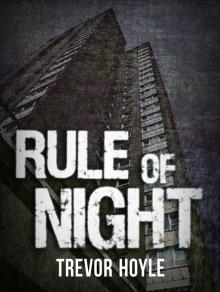 Rule of Night
Rule of Night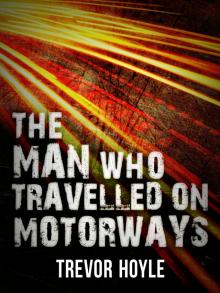 The Man Who Travelled on Motorways
The Man Who Travelled on Motorways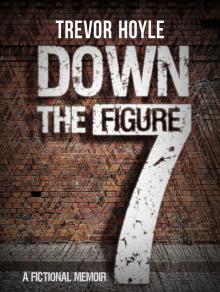 Down the Figure 7
Down the Figure 7 The Gods Look Down
The Gods Look Down Last Gasp
Last Gasp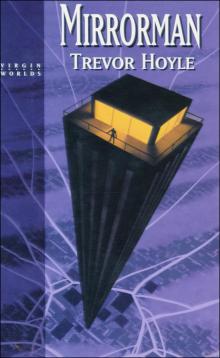 Mirrorman
Mirrorman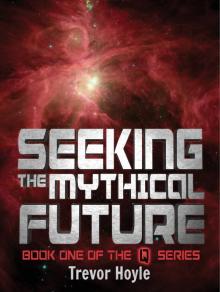 Seeking the Mythical Future
Seeking the Mythical Future Through the Eye of Time
Through the Eye of Time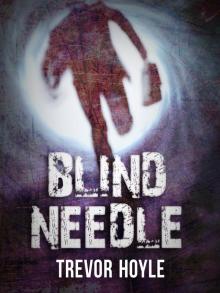 Blind Needle
Blind Needle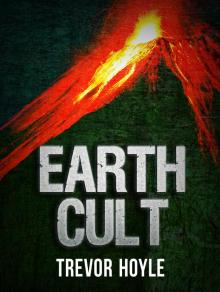 Earth Cult
Earth Cult